std::string has no encoding of its own. It can easily hold characters encoded in ASCII, UTF-8, ISO-8859-x, Windows-125x, etc. They are just raw bytes, as far as std::string is concerned. So, before you can print your output in ISO-8859-1 specifically, you need to first know what the std::string is already holding so it can be converted to ISO-8859-1 if needed.
FYI, ffffffc3ffffff89 is simply the two char values 0xc3 0x89 (the UTF-8 encoded form of É) being sign-extended to 32 bits. Which means your compiler implements char as a signed type rather than an unsigned type. To eliminate the leading fs, you need to cast each char to unsigned char before then casting to unsigned. You also will need to account for unsigned values < 10 so that the output is an even multiple of 2 hex digits per char, eg:
strstream << std::hex << std::setw(2) << std::setfill('0') << static_cast<unsigned>(static_cast<unsigned char>(input[i]));
So, it appears that your std::string is encoded in UTF-8. There are plenty of libraries available that can convert text from one encoding to another, such as ICU or ICONV. Or platform-specific APIs, like WideCharToMultiByte()/MultiByteToWideChar() on Windows, std::mbstowcs()/std::wcstombs(), etc (provided suitable locales are installed in the OS). But there is nothing really built-in to C++ for this exact UTF-8 to ISO-8859-1 conversion. Though, you could use the (deprecated) std::wstring_convert to decode the UTF-8 std::string to a UTF-16/32 encoded std::wstring, or a UTF-16 encoded std::u16string, at least. And then you can convert that to ISO-8859-1 using whatever library you want as needed.
Or, knowing that the input is UTF-8 and the output is ISO-8859-1, it is really not that hard to just convert the data manually, decoding the UTF-8 into codepoints, and then encoding those codepoints to bytes. Both encodings are well-documented and fairly easy to write code for without too much effort, eg:
size_t nextUtf8CodepointLen(const char* data)
{
unsigned char ch = static_cast<unsigned char>(*data);
if ((ch & 0x80) == 0) {
return 1;
}
if ((ch & 0xE0) == 0xC0) {
return 2;
}
if ((ch & 0xF0) == 0xE0) {
return 3;
}
if ((ch & 0xF8) == 0xF0) {
return 4;
}
return 0;
}
unsigned nextUtf8Codepoint(const char* &data, size_t &data_size)
{
if (data_size == 0) return -1;
unsigned char ch = static_cast<unsigned char>(*data);
size_t len = nextUtf8CodepointLen(data);
++data;
--data_size;
if (len < 2) {
return (len == 1) ? static_cast<unsigned>(ch) : 0xFFFD;
}
--len;
unsigned cp;
if (len == 1) {
cp = ch & 0x1F;
}
else if (len == 2) {
cp = ch & 0x0F;
}
else {
cp = ch & 0x07;
}
if (len > data_size) {
data += data_size;
data_size = 0;
return 0xFFFD;
}
for(size_t j = 0; j < len; ++j) {
ch = static_cast<unsigned char>(data[j]);
if ((ch & 0xC0) != 0x80) {
cp = 0xFFFD;
break;
}
cp = (cp << 6) | (ch & 0x3F);
}
data += len;
data_size -= len;
return cp;
}
std::string Helper::ToHex(const std::string &input) {
const char *data = input.c_str();
size_t data_size = input.size();
std::ostringstream oss;
unsigned cp;
while ((cp = nextUtf8Codepoint(data, data_size)) != -1) {
if (cp > 0xFF) {
cp = static_cast<unsigned>('?');
}
oss << std::hex << std::setw(2) << std::setfill('0') << cp;
}
return oss.str();
}
Online Demo
